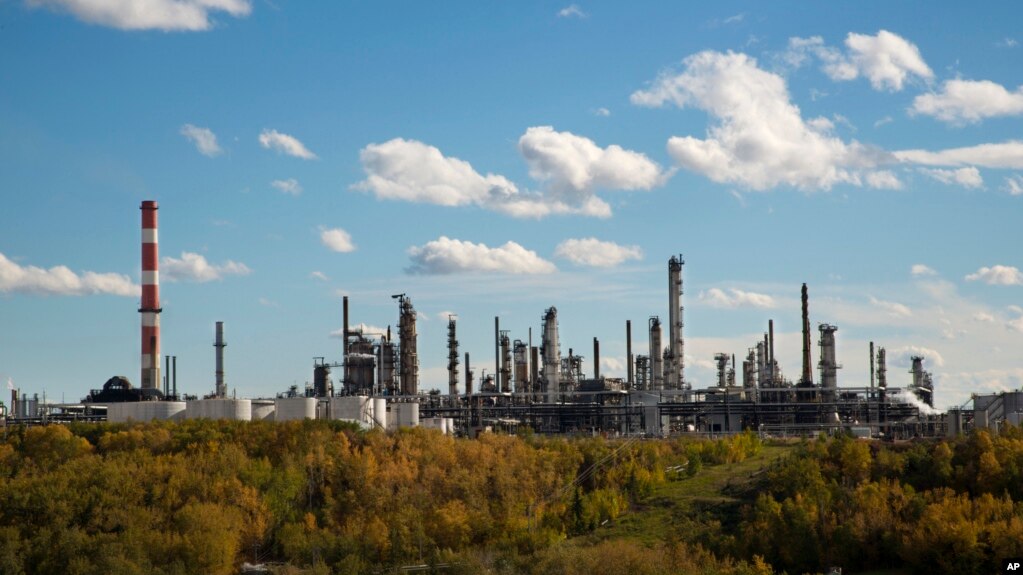Canada Releases Plan to End Inefficient Fossil Fuel Subsidies

Canada on Monday presented its plan for ending many of its fossil fuel industry subsidies. The plan’s release makes Canada the first member-country of the Group of 20 to honor a 2009 promise to end government financial support to the industry.
Climate policy experts say the announcement marks an important step forward. But some argue that the plan falls short by continuing to permit government support for some oil and gas projects. The proposed measure includes exceptions that would permit subsidies for projects that plan to reduce emissions through technology like carbon capture and storage, or CCS.
Canada said it will not cancel any current multi-year subsidy agreements that are already in place.
Steven Guilbeault is Canada’s Environment Minister. He said the plan guarantees that “federal support for oil and gas goes to projects that decarbonize” their production and show substantial reductions in greenhouse gas emissions.
Active fossil fuel operations are exempt from the policy if they fall into one of six categories. One category is the ability to reduce carbon emissions. Another is support for clean energy. Businesses that provide critical energy to rural communities are another exempted category, as are those that support native communities in fossil fuel activities or those that have a plan to reach net-zero emissions by 2030.
Bringing an end to fossil fuel subsidies is part of a 2022 deal signed by Prime Minister Justin Trudeau's minority Liberal party and the New Democratic Party (NDP).
The NDP critic for Climate Change and Environment, Laurel Collins, said the new rules do not go far enough.
Collins said, “it is clear that this announcement doesn't meet the urgency of the moment when climate disasters are putting everything we value at risk.”
Canada is the world's fourth-largest oil producer. Carbon capture is expected to play a major part in decarbonizing the industry. Canada last year announced a CCS investment tax credit. Carbon capture is a process by which carbon dioxide is taken from the atmosphere and stored underground.
The Pathways Alliance is a partnership between Canada's six largest oil sands producers. It is planning to develop a $12 billion CCS center in northern Alberta. Pathways President Kendall Dilling said in a statement that the organization was happy the framework recognized the need for government partnership on the project.
Canada is expected to release a plan to end public financing of fossil fuel projects within the next year.
Julia Levin is with the climate group Environmental Defense. "The Government of Canada must quickly take the final step and end all fossil financing – without any loopholes for fossil gas, fossil hydrogen or CCS,” she said.
Words in This Story
subsidy — n. money that is paid usually by a government to keep the price of a product or service low or to help a business or organization to continue to function
emission — n. the act of producing or sending out something from a source
greenhouse gas — n. any of various gaseous compounds (such as carbon dioxide or methane) that absorb infrared radiation, trap heat in the atmosphere, and contribute to the greenhouse effect
exempt — adj. not required to do something that others are required to do
category — n. a group of people or things that are similar in some way
net-zero — adj. when a country, city, etc. removes as many emissions as it produces
loophole — n. an error in the way a law, rule, or contract is written that makes it possible for some people to legally avoid obeying it
https://learningenglish.voanews.com/a/canada-releases-plan-to-end-inefficient-fossil-fuel-subsidies/7198673.html